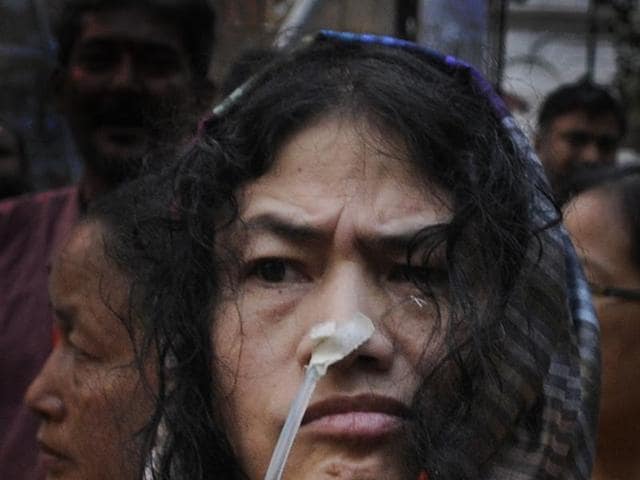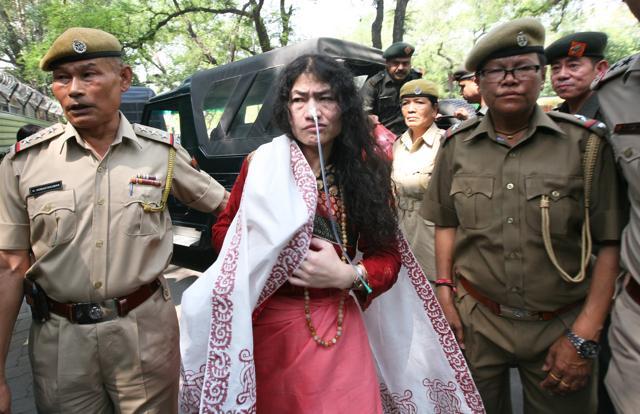Mother, Where’s my Country review: A deeply researched book on Manipur
Though Anubha Bhonsle’s deeply researched stories of Manipur appeal to the heart, the author, like everybody else, seems clueless about solutions.
Though Anubha Bhonsle’s stories of Manipur appeal to the heart, the author, like everybody else, seems clueless about solutions.

Notwithstanding the continuous gripe about neglect by the national media, images of political turmoil in Manipur have often hit the national headlines. The burning down of the state assembly and other state buildings in Imphal in the aftermath of the extension of the ceasefire agreement between the Indian Government and the NSCN (IM) “without territorial limits” in 2001, the prolonged agitations over the killing of Manorama Devi on 11 June, 2004 and naked protests by womenfolk in Imphal four days later, the images of burnt buildings and mammoth rallies by tribal women in Churachandpur after the passing of three land/identity-related bills in the Manipur Assembly on 31 August last year, etc. come to mind. And of course, there is Sharmila Chanu and her still-ongoing hunger strike in protest against AFSPA.
Read:Irom Sharmila continues fast in Imphal
Most people in India know of these problems through images or sterile incident-reports in newspapers. The picture of 12 elderly women standing naked behind banners proclaiming, “Indian Army, rape us” remains etched in our memory. Beyond that, there has been little serious work, scholarly or journalistic, that attempts to shed light on the personalities and stories behind these disturbing images.
Anubha Bhonsle’s, “Mother, Where’s my country?: Looking for Light in the Darkness of Manipur” is an attempt to fill this void. Presented in an engaging narrative style, Bhonsle weaves together a set of deeply researched stories, ranging from the Malom killings and Sharmila to Manorama Devi and the naked protests in front of the Kangla to the travails of the Naga rebel, and many others in between, which should help us reimagine Manipur’s many tragedies from a human perspective. The author breaks down these tragedies and jettisons the general in favour of the specific to walk us through the individual experiences of those most affected. It is a story of suffering, resentment and state apathy. These stories appeal to the heart and help us “find fellowship in loss” and this probably is the book’s greatest strength.
As the title suggests, Irom Sharmila and her fast is the main story. But the story does not start with Sharmila but with Sinam Chandramani, who, as a four-year-old, had rescued another boy from drowning and was awarded the National Bravery Award in 1988 by prime minister, Rajiv Gandhi. Chandramani was among the 10 people killed when Assam Rifles personnel opened fire at Malom village near Imphal on 2 November, 2000 after their convoy was attacked. He was on his way to tuition class. Told through the perspective of his mother Chandrajini, who also lost another son and a sister, the story is both entrancing and haunting. A letter from the Child Welfare Department of the Government of India in Delhi would came every year enquiring about Chandramani’s welfare and future study plans long after the tragedy. Apparently, nobody had notified them about the boy’s death. It was this tragedy that prompted Sharmila to quietly started her fast inside her own home the next day.
Read:JNU students not allowed to meet Irom Sharmila
The book offers a detailed account of Sharmila’s “not-quite life” in hospital, how she was surreptitiously smuggled to Delhi in 2006, and her love story with Desmond Coutinho. Bhonsle poignantly captures Sharmila’s travails of nose-feeding: “There is an empty taste that hunger leaves in the mouth. For Sharmila hunger and eating had been detached, eating had become this scientific, precise, measured thing that involved assimilating nutrients and vitamins through beakers and tubes. An experiment where there was more vigilance than taste. Food was nostalgia; sometimes a memory and sometimes it came in her dreams: her mother Sakhi was feeding her rice with her hands…” (page 54).
Likewise, the killing of Manorama Devi, the naked protests by women, the Upendra Singh Commission’s travails, and the eventual surrendering of the Kangla Fort by Assam Rifles, have been discussed in detail.
However, the book offers little by way of finding “light in the darkness of Manipur”. The author seemed as clueless as anybody else on how to break through multiple deadlocks. As she notes in the epilogue, AFSPA continues and Sharmila continues to survive through nose-feeding. The Manorama case too, still awaits closure. The rigmarole of peace talks and the Suspension of Operations (SoO) agreements carry on. Manipur remains engulfed in resentment and victimhood. What if Sharmila says no to the nose-feeding? As of now, the ritual of release and re-arrest, the medical procedure of inserting 2000 kCal value of proteins, carbohydrates and vitamins in liquid form through a nasal pipe has become routine, the new normal to which everyone adapts. The state government is not complaining about spending Rs. 70,000 a month on Sharmila’s medication and nose-fed food.

Is Sharmila demanding the repeal of AFSPA from the statute book in its entirety as a matter of principle? Will she relent if the Act is withdrawn from Manipur? These questions remain unclear. As it is, the Act has already been withdrawn from seven Assembly constituency segments in the Imphal valley including the area to which she belongs. The issue of AFSPA is now enmeshed within a complex web of interests and it will take solid political will to repeal it.
There are some notable omissions too. Issues relating to Sharmila and Manorama have resonance only in the Imphal valley. The hill tribal people chose not to be a part of it. For them, these are valley issues. Bhonsle broached the issue once, when she asked, “What if Sharmila was a Naga?” (p. 136). The Naga response was that “a Naga will never starve or fast to death or kill herself. We die with a bullet or get our heads cut off.” I am not sure how representative this attitude is for the tribal people, but the disdain for what the tribal people perceive as “symbolic” modes of protest is widespread.
Read:Unrest in Manipur over three controversial bills refuses to die down
The passing of three “anti-tribal” bills in the Manipur Assembly on 31 August last year showed up the hill-valley divide beyond denial. Nine tribal people who were killed in the protests that followed the passing of these bills have not been buried till date as the tribal groups demand the withdrawal of the bills and stronger forms of constitutional safeguards for their identity and land. The protests continue not only in Churachandpur, but also at Jantar Mantar, Delhi. On the other side, as I write this, the valley people have again hit the streets to renew their demand that the bills, which are awaiting presidential assent, be implemented without delay. Analysing and addressing this divide, which is central to finding the path to light in the darkness of Manipur, will require more than another book.
(Thangkhanlal Ngaihte is an independent researcher based in New Delhi)



